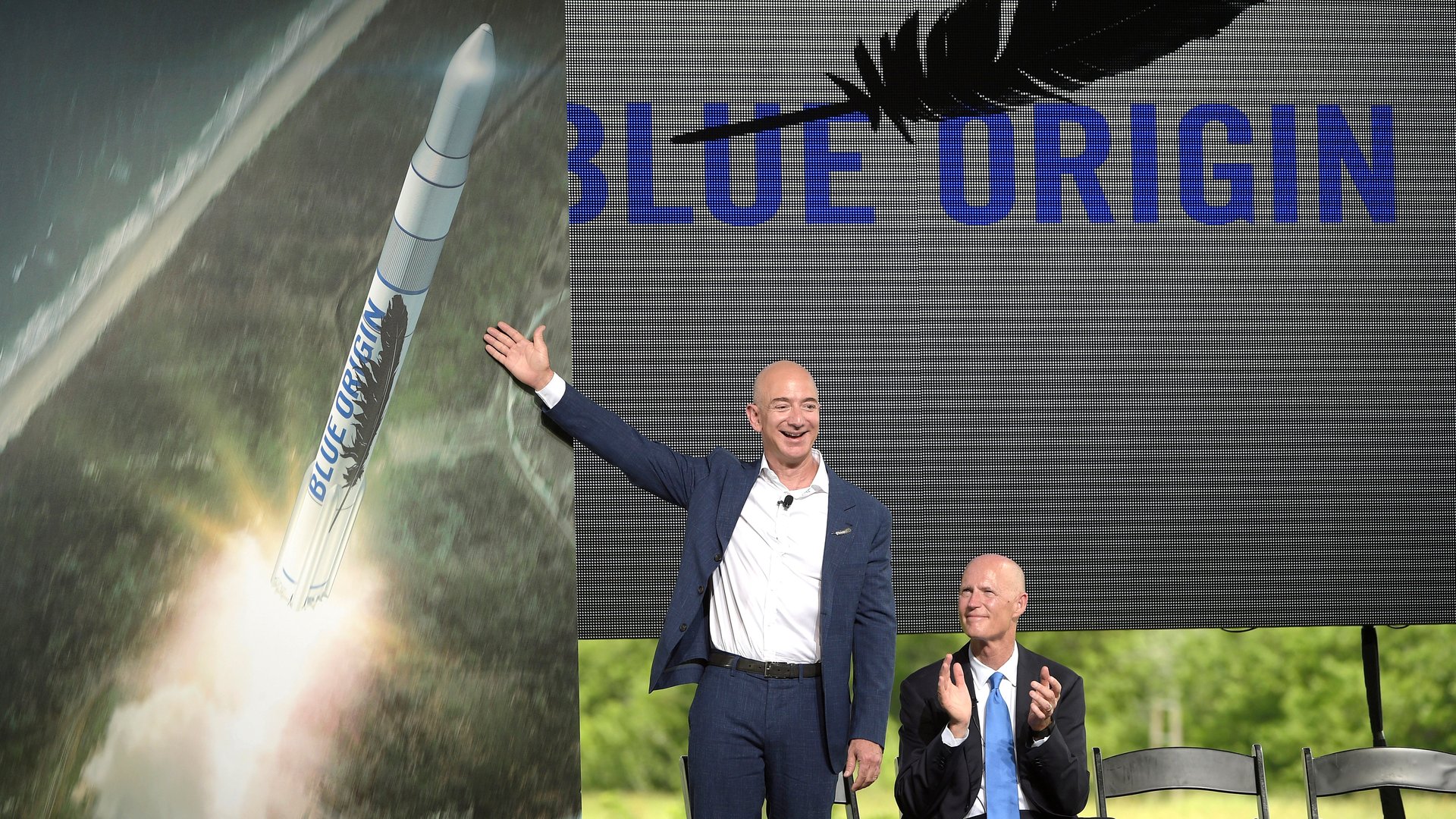Amazon is making a late entry into the internet satellite race
A company called Kuiper Systems LLC has been revealed as the front for an Amazon plan to launch thousands of satellites offering internet connectivity to users below.


A company called Kuiper Systems LLC has been revealed as the front for an Amazon plan to launch thousands of satellites offering internet connectivity to users below.
The news, revealed by regulatory filings at the International Telecommunication s Union in Geneva, was first reported by Geekwire and confirmed to Quartz by an Amazon spokesperson.
“Project Kuiper is a new initiative to launch a constellation of Low Earth Orbit satellites that will provide low-latency, high-speed broadband connectivity to unserved and underserved communities around the world,” the Amazon statement said. “This is a long-term project that envisions serving tens of millions of people who lack basic access to broadband internet. We look forward to partnering on this initiative with companies that share this common vision.”
The description of the constellation suggests is akin to many other new satellite schemes already underway by companies like Elon Musk’s SpaceX, the SoftBank Vision Fund-backed OneWeb, and Canada’s Telesat. Each is raising billions of dollars to construct thousands of satellites the size of washing machines that will circle the earth at relatively low altitudes—from just under 400 miles (600 km) above the earth to around 1000 miles (1609 km) up. There, they promise to create a speedy internet network accessible across most of the world.
Like many of its competitors, Amazon portrays its potential network as do-gooding for underserved communities, along with rural areas where terrestrial internet access infrastructure is expensive. Typically, however, satellite internet schemes have mostly made money from telecoms, the military, oil companies, and cruise lines. That may change as their offerings become cheaper and more capable.
Amazon founder Jeff Bezos is a space obsessive, with his own rocket company, Blue Origin, which has designed several rockets to use for suborbital tourism as well as a large, reusable orbital rocket intended to launch in 2022.
But these plans are hardly easy: Using hundreds of small satellites flying close to the earth rather than a few larger satellites flying much further away has yet to be proven operationally, and the capital needed to develop, build and launch the spacecraft could easily surpass the $10 billion mark. That’s one reason why Amazon mentions partnerships with other companies: Even the world-spanning retail colossus is likely to need help financing, manufacturing and launching these satellites.
They better hurry. SpaceX’s Starlink has two operational satellites in orbit already, with plans to launch more this year, while OneWeb, backed by the telecom entrepreneur Greg Wyler, launched its first six satellites in February. Telesat plans to begin its own service in 2022, and even Boeing has floated plans for a similar network. The first major commercial satellite networks launched in the 1990s ran into bankruptcy in part because of over-capacity, and a similar fate could befall today’s last-mover satellite companies.
The satellite plan certainly fits into Amazon’s digital, customer-centric strategy, at least as well as any of the other myriad tasks the company is doing. Last year, Amazon Web Services, a division that provides cloud computing, announced it would offer satellite ground stations for customers to transmit space data into its network. Creating its own global communications network will create opportunities to bring its services to more customers, more directly. And should Amazon follow through on plans to use various robots to deliver its packages, this constellation could be the perfect communications back-bone for the service.
The decision to build out a satellite internet network at Amazon rather than Blue Origin suggests the world’s richest man sees immediate financial and operational gains from the potential network, rather than the long-term plans he is working toward at Blue. Regardless of which firm operates the network, it’s hard to imagine Bezos won’t use the opportunity to provide his personal company with additional satellite-launching business.
Amazon is hardly the only tech giant to float ambitious internet access schemes. Facebook and Google have toyed with launching their own satellite networks, as well as using drones and balloons to provide connectivity. None of those efforts have yet come to fruition.